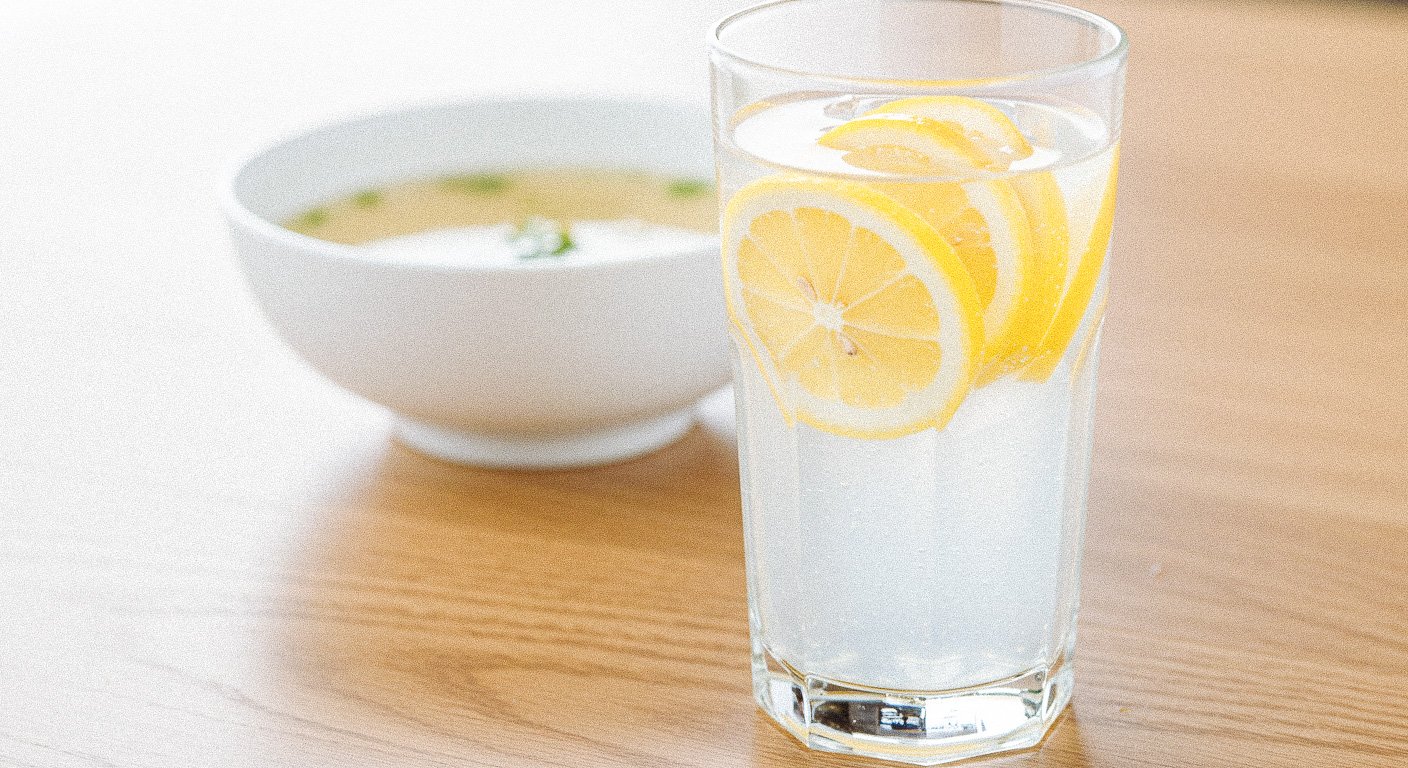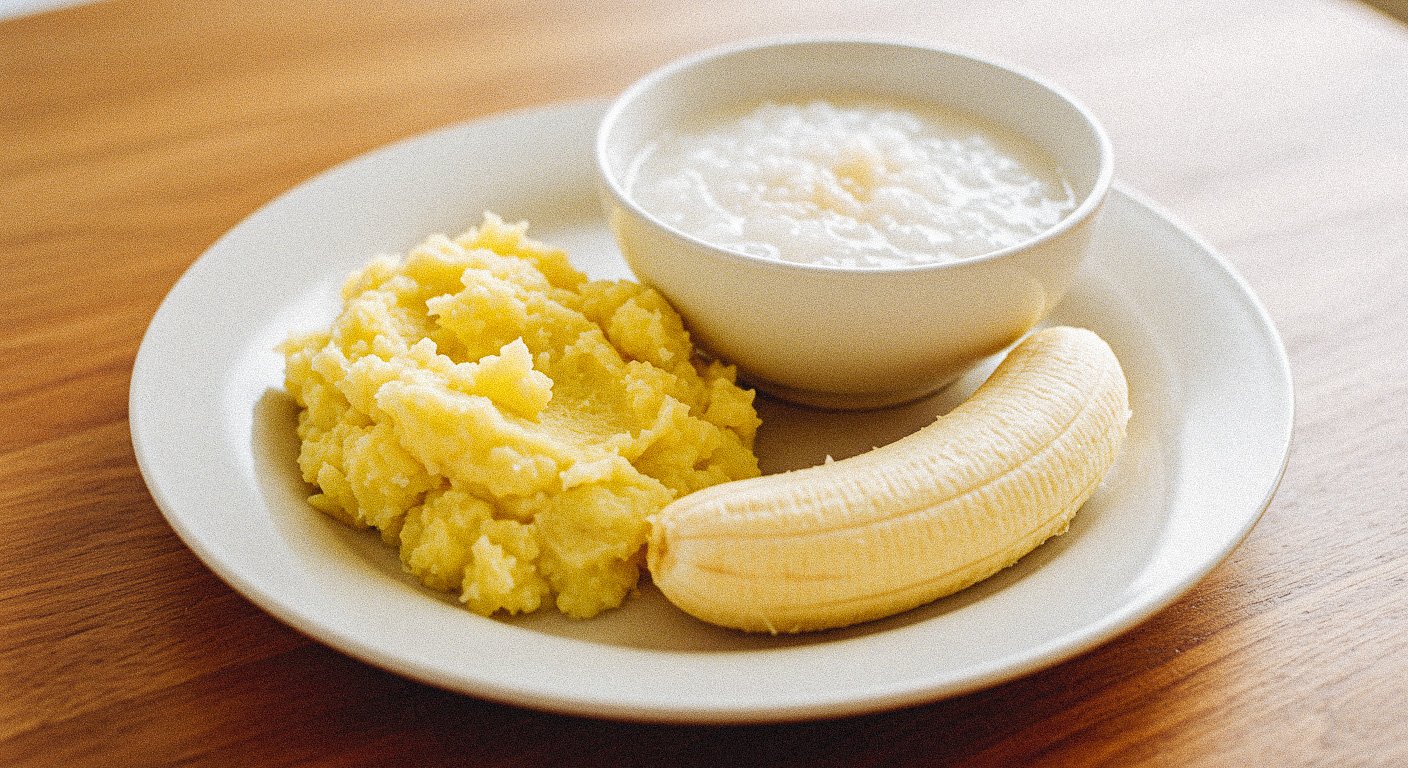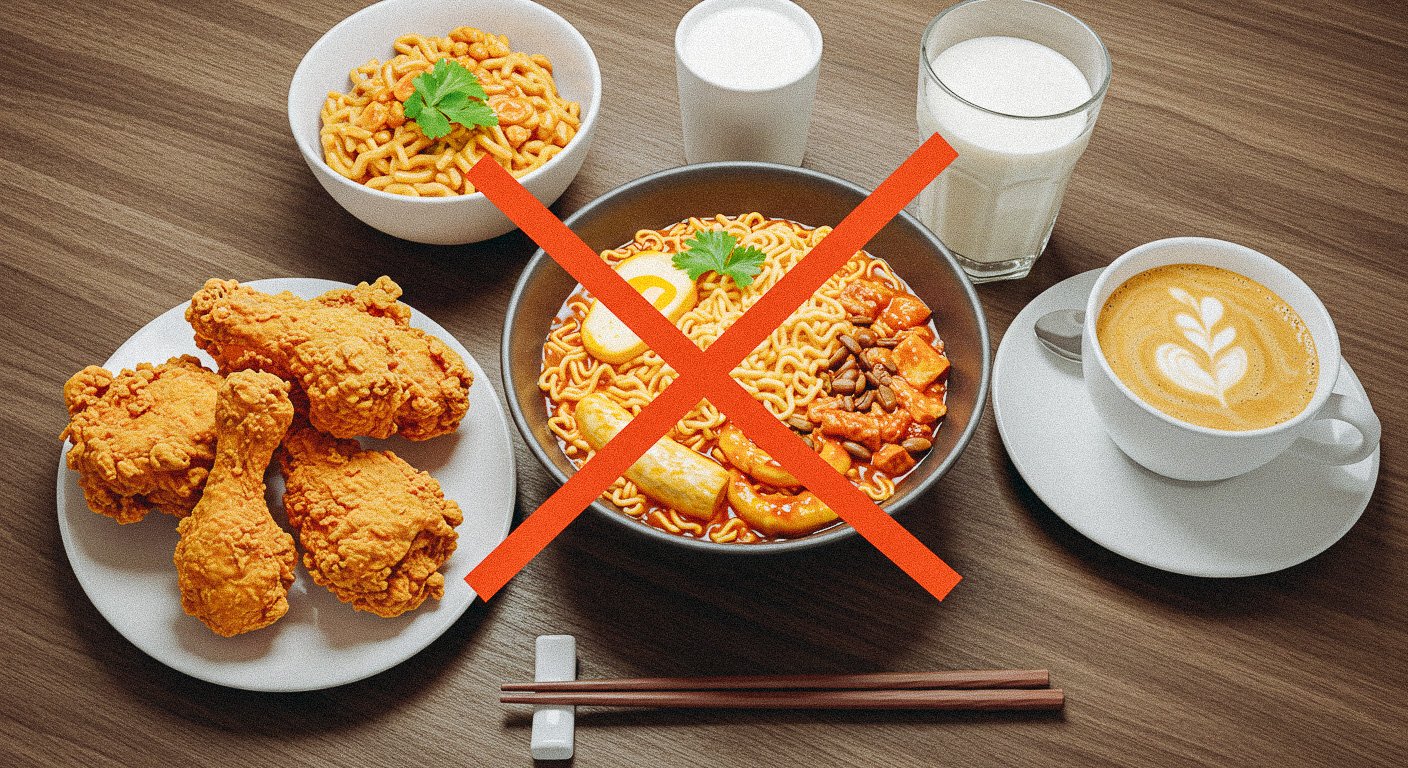Gastroenteritis, commonly known as the stomach flu, can be caused by viral or bacterial infections and often leads to diarrhea, nausea, vomiting, abdominal cramps, and dehydration.
Proper nutrition plays a crucial role in speeding up recovery, restoring electrolyte balance, and reducing digestive discomfort.
This article provides a science-backed guide on the best foods to eat and avoid when recovering from gastroenteritis in the United States.
1. Essential Diet Guidelines for Gastroenteritis Recovery
When suffering from gastroenteritis, your digestive system is sensitive, and eating the wrong foods can worsen symptoms.
To recover quickly, focus on gentle, easily digestible foods that hydrate and soothe the stomach.
📌 Key Principles for Eating During Gastroenteritis
✅ Stay Hydrated – Prevent dehydration caused by vomiting and diarrhea
✅ Eat Easy-to-Digest Foods – Choose bland, low-fat, and soft-textured foods
✅ Replenish Electrolytes – Consume foods rich in potassium and sodium
✅ Avoid High-Fiber Foods Initially – Reduce fiber intake temporarily to ease digestion
💡 Studies show that proper hydration and electrolyte replacement can shorten recovery time by up to 30% in gastroenteritis patients.
2. Best Foods to Eat for Gastroenteritis Recovery
1) Hydrating and Electrolyte-Rich Beverages

Since diarrhea and vomiting lead to fluid loss, rehydration is the first priority in gastroenteritis recovery.
📌 Recommended Drinks
- Oral rehydration solutions (ORS) – Available at drugstores; helps restore electrolytes
- Coconut water – A natural source of potassium and electrolytes
- Herbal teas (ginger, chamomile) – Helps soothe nausea and stomach discomfort
- Clear broths (chicken or vegetable broth) – Replenishes fluids and minerals
💡 Research indicates that ORS solutions can improve dehydration recovery 1.5 times faster than plain water.
2) Easy-to-Digest Carbohydrates

The BRAT diet (Bananas, Rice, Applesauce, Toast) is commonly recommended because it consists of low-fiber, bland foods that are gentle on the stomach.
📌 Recommended Foods
- Bananas – High in potassium and helps firm up stools
- White rice – Easily digestible and helps settle the stomach
- Applesauce – Contains pectin, which can help bind stool and reduce diarrhea
- Plain toast or crackers – Provides energy without irritating the stomach
💡 A study found that bananas reduce diarrhea duration by 25% due to their pectin content.
3) Probiotics for Gut Health Recovery

After gastroenteritis, restoring healthy gut bacteria is essential for long-term digestive health.
📌 Recommended Probiotic Foods
- Plain Greek yogurt – Contains live cultures that aid digestion
- Kefir – A fermented dairy drink with high probiotic content
- Sauerkraut or kimchi (mild, not spicy) – Fermented vegetables that replenish good bacteria
💡 Research suggests that patients consuming probiotics recover up to 2 days faster from gastroenteritis.
4) Stomach-Soothing Foods
Certain foods can coat the stomach lining and reduce inflammation, easing discomfort.
📌 Recommended Foods
- Mashed potatoes (without butter or cream) – Easy to digest and gentle on the stomach
- Oatmeal (plain, unsweetened) – Provides slow-releasing energy and soothes the stomach
- Boiled carrots – Contains nutrients that help calm the digestive tract
💡 Studies indicate that boiled carrots can speed up intestinal healing by reducing inflammation.
3. Foods to Avoid During Gastroenteritis

Some foods can worsen symptoms and prolong recovery, so it’s essential to avoid them until fully recovered.
🚫 Dairy Products – Milk, cheese, and ice cream may cause temporary lactose intolerance
🚫 Caffeinated Drinks – Coffee, tea, and energy drinks can irritate the stomach
🚫 Fatty & Fried Foods – Hard to digest and may worsen nausea and diarrhea
🚫 Spicy Foods – Can further inflame the stomach lining
🚫 Raw Vegetables & High-Fiber Foods – May cause bloating and discomfort
4. Summary – Key Takeaways for Gastroenteritis Recovery
✔ Hydration is the #1 priority—drink ORS, coconut water, or clear broth
✔ Eat bland, low-fiber foods (bananas, white rice, applesauce, toast)
✔ Reintroduce probiotics (Greek yogurt, kefir) to restore gut balance
✔ Choose stomach-soothing foods (mashed potatoes, oatmeal, boiled carrots)
✔ Avoid dairy, caffeine, fried foods, and high-fiber vegetables










